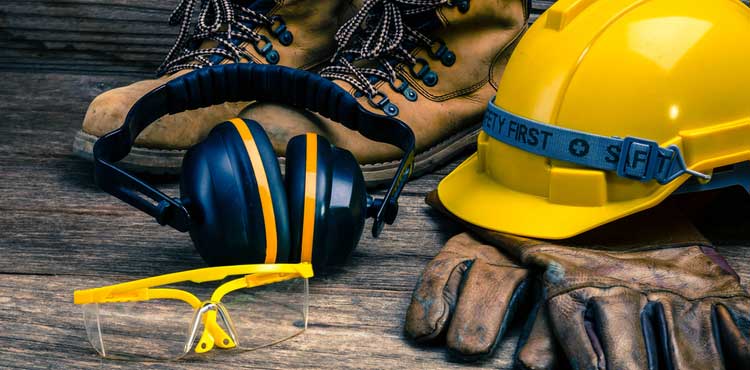8 workplace safety tips for employers

Developing a culture of safety at your business is important. In addition to protecting your employees and customers, workplace safety can also save you money. The fewer workers’ compensation claims that are brought against your business, the lower your rates will be.
These tips can help you create a safer work environment:
Train workers on proper safety protocols
Your employees should be trained to safely execute the duties listed in their job description, including proper lifting techniques and how to handle any hazardous materials that are present in the workplace. Each new employee should be properly trained before beginning work, and it’s important to provide refresher training periodically.
Have emergency procedures in place
Develop a written safety plan that clearly outlines a procedure for handling and reporting injuries and emergencies, including phone numbers for first responders. Make sure every employee has read the plan as part of their training, and review it with them as part of your periodic training refreshers. Also, make sure to post the plan in an accessible spot, so it’s easy to reference.
Outfit employees with the proper gear to keep them safe
What your employees need as personal protective equipment (PPE) depends on your industry. For example, antibacterial garments keep people safe with food processing, masks with double-ply panels are used by healthcare workers, and industrial workwear is fire retardant and sturdy. An industry association can often provide guidance for your particular workplace.
Require proper footwear
Proper footwear is essential in any workplace. If your employees will be outside, footwear should be appropriate for the weather. Non-slip soles are important in almost every environment. Encourage staff to wear closed-toe shoes at work, and provide sturdy footwear in workplaces where there is a risk of foot injuries.
Post signs and labels where there are hazards
Some hazards are temporary, such as spills that cause a floor to be slippery. Others hazards are more permanent, such as stored chemicals or sharp tools. Be sure to correctly label permanent hazards, and have signs ready for temporary dangers that could impact your business. The Occupational Safety and Health Administration (OSHA) has regulations for what conditions require signs and what the signs need to say.
Maintain tools and equipment
Did you know that more restaurant injuries happen with dull knives than sharp ones? That’s because a dull knife requires more pressure to cut through food, and that increases the likelihood of not just accidental cuts, but also repetitive motion injuries like tendonitis and carpal tunnel syndrome. Any equipment used by your employees should be checked regularly to make sure there are no broken or worn parts, no mechanical malfunctions, and that everything is working as intended. Perform routine maintenance on your equipment so that it can have a longer lifespan and your employees stay safe.
Maintain a clean workplace
Aside from the psychological benefits of reduced clutter in the workplace, it’s also imperative for physical safety. Hallways, walkways, and exit routes should remain free of clutter and debris to avoid tripping hazards. Also be on the lookout for tangled cords, disorganized tools, and boxes that are stacked unsafely.
Consider ergonomic furniture and equipment
People who perform office work also need to think about workplace safety. They might be less likely to be injured from a one-time accident, but they are at risk for back and neck pain, carpal tunnel, headaches, and vision issues. It’s important that employees are educated about proper posture when sitting at a desk. Computers and office devices should be adjusted to the correct height and distance so that your employees are working safely.
By following these workplace safety tips, and others that are specific to your industry or environment, you can enjoy increased employee retention, higher productivity, and reduced workers’ compensation costs. Take a look around your work space today and see where you can make some positive changes.
How workers' compensation protects your business
Even when you maintain a safe workplace, some injuries are unavoidable. If an employee is injured or becomes ill, workers’ compensation insurance protects both the employee and the business. It provides coverage for medical expenses and lost wages for the employee, and limits ongoing liability for business owners.
Workers’ comp is required by law in most states, but the rules for coverage vary depending on where you do business.
Compare quotes from trusted carriers with Insureon
Complete Insureon’s easy online application today to compare quotes for workers' compensation and other types of insurance from top-rated U.S. carriers. Once you find the right policy for your small business, you can begin coverage in less than 24 hours.
Melissa Gold, Contributing Writer
Melissa is a contributing writer and accomplished editor with a combined background of legal, journalism, and digital marketing. She's experienced in translating technical and in-depth material into digestible, easy-to-understand content.







